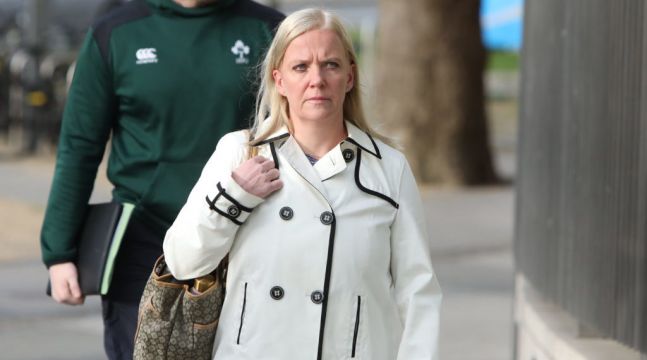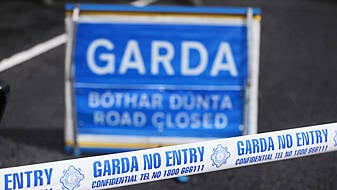A former financial services manager told gardaí that internal emails did not show she was aware of criminal activity within Custom House Capital over a decade ago, a jury has heard.
Ciara Kelleher (51) of Blackhorse Ave, Dublin 7, has pleaded not guilty to one count of conspiring with others to defraud investors, clients, and customers of Custom House Capital (CHC) Ltd by intentionally misleading them as to where or how their assets had been placed in the investment firm.
The offences are alleged to have happened within the State on dates between October 2008 and July 2011.
A transcript of the second interview given by Ms Kelleher to gardaí following her re-arrest by appointment on January 29th, 2020, was read to the jury on the eighth day of the Dublin Circuit Criminal Court trial on Thursday.
During this second interview on January 29th, 2020, gardaí asked Ms Kelleher to comment on a series of internal emails and reports.
Gardaí told Ms Kelleher during this interview that they believed some of these documents showed she was linked to a conspiracy to defraud CHC clients by not advising on the true status of their funds or where money was invested.
Ms Kelleher said this was “100 per cent incorrect”, and these documents showed she was trying to get answers from the finance department to allow for a backlog in client valuations to be resolved.
Ms Kelleher told gardaí that an email she sent to John Whyte, head of private clients, in July 2010 was not an offer to contribute to fraud, but to help the finance department.
The defendant said she was asking for training and procedures so her team could help with this backlog of calculations. She told gardaí that she wasn't saying, “I’ll do the fraud for you. You sit back and have a cup of tea.”
The defendant told gardaí this email was an offer to help, but she hadn't realised she was running into a “quagmire”.
Followed procedure
Ms Kelleher said her team had followed their procedures which meant they wouldn't ignore a pop-up note on a client file which instructed them to refer to the finance department or Paul Lavery, head of finance.
The defendant told gardaí that client information was confirmed by the finance department, and she didn't question if “something criminal” was taking place behind the scenes.
Ms Kelleher said she also sent emails to Mr Lavery and Mr Whyte asking why transfers of client funds were delayed and querying why small amounts of interest were posted on some client accounts. Gardaí put it to Ms Kelleher that these emails showed she was aware that client funds were not in cash as they were supposed to be, which she denied.
Ms Kelleher said she would have been contacting the finance department in these cases to ensure that the correct interest was applied to a client's account. The defendant said her team had no reason at the time to suspect anything criminal was taking place.
Ms Kelleher said she escalated her concerns about delays getting information from the finance department to Mr Whyte, as this impacted on her team's backlog of valuations.
She said she wasn't aware that the Central Bank had issued a directive to CHC not to take on any new clients. Ms Kelleher suggested to gardai that this might explain why Harry Cassidy, CHC's CEO, had taken an interest in the backlog faced by her team.
The defendant told gardaí that she was aware there was pressure to send invoices to clients but felt this was not “overt”.
She said an email sent to Mr Cassidy in September 2010 was to provide an update on the backlog and didn't indicate that she was aware that client funds weren't where they were supposed to be.
The trial continues before Judge Orla Crowe and the jury.







